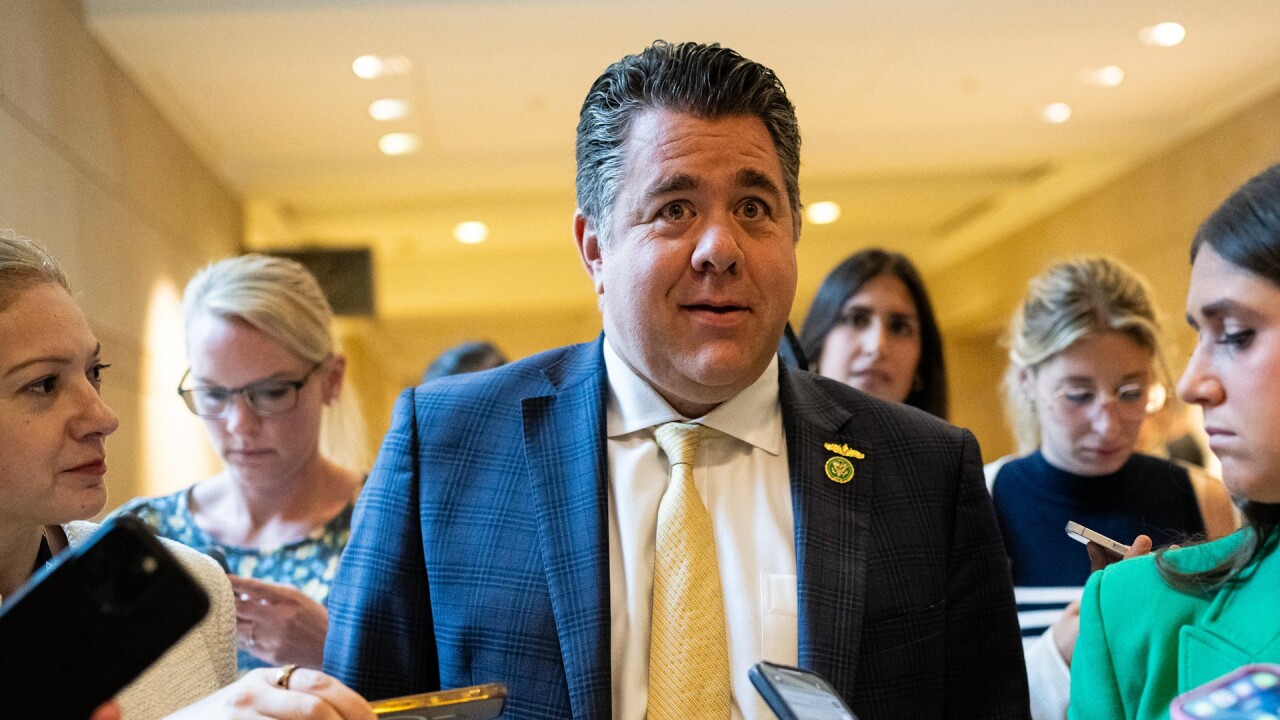Last month my father, Jim Lebenthal, passed away suddenly. He was 86, and he was at his desk until the day he died. As readers of the Bond Buyer know, Dad was an artist with municipal bonds for his muse, an educator on the merits of public finance, a pitchman for triple-tax free income. He was a true American original, and his passing leaves a hole in all his walks of life, including the municipal bond market.
In the days after he died, I received many kind notes, including one from an industry professional that read in part, "Just like they put a statue of Michael Jordan in front of Chicago's United Center and Rocky at the Philadelphia Museum of Art, they should put a statue of Jim Lebenthal in front of every office that sells municipal bonds and every bridge, tunnel, waterworks and subway that was financed by them."
A tad hyperbolic, perhaps, but it raises a serious question: Who will lead the charge for municipal bonds now?
I believe that now more than ever the municipal market needs a Jim Lebenthal. Not since the Great Depression have we witnessed more suspicion and fearmongering with regard to the creditworthiness of municipal issuers. Not since the 1986 Tax Act have we seen a greater effort by Congress to dilute the effectiveness of tax-exempt financing for state and local governments. Not since the ultra-low interest rates of the Eisenhower years has there been such pressure on yields. Not for generations has our country's infrastructure been in greater need of replacement and repair. And never before have we seen such an assault on the capital-structure seniority of municipal bondholders. Tax-free municipal bonds are an absolute necessity for our country—for investors and for issuers—and I feel the nation is losing its focus.
To better understand why we need such leadership, it is worth sketching out a worst case scenario for the future of the municipal bond market and assessing probabilities for such an outcome. What has to happen for municipal bonds to become nothing more than a quaint relic of years gone by, an illiquid financial-market backwater? It starts with a highly visible market expert making claims for the imminent financial ruin of hundreds of billions of dollars of municipal bonds during the middle of a financial crisis. Nervous investors look at the isolated and well- known problems in the market—Detroit, Jefferson County, Puerto Rico, Illinois—and start to generalize across an entire market. A run ensues. It continues with a zealous tax reformer pays for an income tax cut with a surcharge on tax-exempt income. On a relative value basis this tax structure diminishes the after-tax yield advantage for muni investors, and investor demand continues to wane. A sizeable municipal bankruptcy follows, one in which general obligation and revenue bondholders are forced to accept less than par in a workout situation. Investors continue to shy away from the sector, liquidity dries up, muni yields rise as a result, and issuers find it more difficult and expensive to finance their projects through the municipal market. So they find other avenues for project financing, such as private equity or infrastructure funds which have less liquidity, less credit availability in certain market conditions and limited access for individual investors. And there you have it—municipal bonds become the buggy whip of the financial markets.
While this series of unfortunate events has begun, thankfully it has not played out to its worst case conclusion. Meredith Whitney cried wolf, but there is no evidence of systemic insolvency in muniland and her dubiously researched claims have been discredited. Rep. Dave Camp floated the 10% surcharge idea and no one blinked, but tax reform of this nature hasn't passed and isn't likely to with this Congress. The well-known troubled names in the market began their workouts, and bondholders in some situations got crammed down, but investors in these credits had plenty of forewarning. Spreads remain tight due to the absolute level of rates, but liquidity has declined. Issuance is down, but it is not out.
Nevertheless, with so many incipient threats to the municipal bond market, not only must the market remain vigilant in respect of any escalation of those threats, but a renewed effort must begin to remind the country of the many blessings of municipal finance. This is the leadership space heretofore occupied by my father. When exogenous challenges arise, we must defend the markets. When new yield-burning, pay-to-play or other examples of malfeasance are uncovered, we must vocally condemn the transgressions. We must ensure that municipal markets are transparent in every way and that the tool is used for public works and the public good, not merely to enrich bankers and brokers. We must continually gather support for the market through advocacy, outreach and, yes, blatant showmanship. If we need a guiding principle on how to do all of these things, I can think of nothing better than to always ask ourselves, "What would Jim Lebenthal say?"
My father was as passionate as ever for the fight. Indeed, he could be seen pounding the table for municipal bonds as recently as
The municipal market needs a new Jim Lebenthal to emerge, but what it really needs is many people to stand up and say, "I'm Jim Lebenthal." We owe it to ourselves, and our country to protect the legacy that my father has left us.





